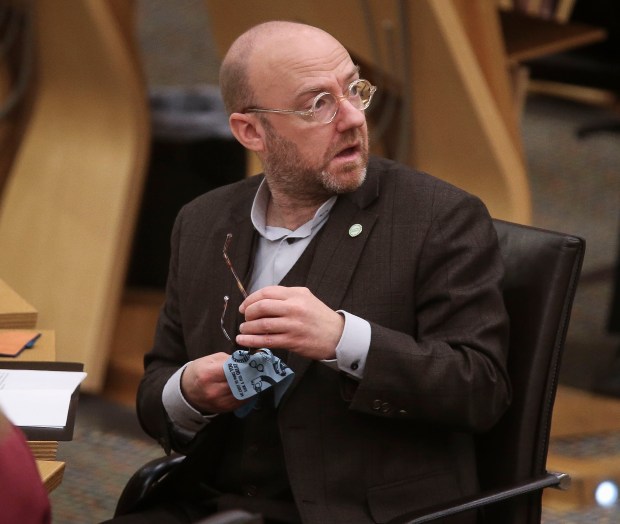Right-wingers appear not to be terribly keen on Penny Mordaunt. Toby Young read her book Greater: Britain After the Storm and didn’t like what he found. Nor did Will Lloyd, over at UnHerd, who wrote that: ‘Mordaunt tacks to the centre, but ends up on the managerial left. What she writes sounds like it was dredged from a particularly poor speech given at Davos five years ago.’ Sam Ashworth-Hayes even goes so far as to suggest she would be better suited to leading the Labour party. Here we must draw the line. The Labour party is more than capable of anointing its own ideologically unsuited leaders, thank you very much.
To her conservative critics, Mordaunt is not just liberal: she’s alarmingly woke. They despair that a sizeable section of the rank-and-file seems to love her. (Whether it actually loves her or reckons a female Heracles is needed to clean out the Johnsonian stables is another matter.) A cursory glimpse through Mordaunt’s record of pronouncements and positions would suggest these objections are more than swivel-eyed demands for ideological purity. Her views do seem out of step with the Tory mainstream, though they are far from anywhere near coherent enough for a philosophy. She is the sort of woolly, issue-centric, vaguely progressive Tory first heralded by the Cameron-Osborne project.
The case against Mordaunt isn’t that she’s a raging lefty but that a) she has held certain progressive views that should trouble left and right alike, and b) she was willing to toss them overboard at her earliest convenience. One of the most break-neck – some would say brass-neck – U-turns in recent political history was a Twitter thread on gender ideology that Mordaunt posted at the outset of her leadership campaign. It represented not so much a disavowal of her past statements but a pretence that they never happened. She claimed she had ‘challenged the trans orthodoxy’, adding:
I am biologically a woman. If I have a hysterectomy or mastectomy, I am still a woman. And I am legally a woman.
Some people born male and who have been through the gender recognition process are also legally female. That DOES NOT mean they are biological women, like me. pic.twitter.com/bdIya5I2RW— Penny Mordaunt (@PennyMordaunt) July 9, 2022
These would be shocking enough declarations from any Conservative MP, hinting as they do at political priorities beyond raising taxes on working-age people and preventing them from owning a home. From Mordaunt, they are especially shocking because they represent a complete volte-face. After all, it was Mordaunt who, as a government minister, stood up in the Commons and recited the Nicene Creed of gender ideology: trans men are men and trans women are women.
Leading for the government in a 2021 debate on the Ministerial and other Maternity Allowances Act, Mordaunt linked the trans rights movement to the historical gay and lesbian liberation struggle. She said MPs ‘cringe’ at things their predecessors said about gays but challenged them: ‘Would we have gone out of our way to send our support, empathy and understanding to gay people at the time?’ After all, she added: ‘The challenge for us today is exactly the same with trans people’.
In the same debate, Mordaunt addressed Lords amendments to the Bill which replaced the government’s gender-neutral language with references to ‘mothers’ and ‘expectant mothers’. Mordaunt told the House the government was accepting the amendments, adding:
[B]ut let me say in supporting them from this dispatch box that trans men are men and trans women are women, and great care has been taken in the drafting and accepting of these amendments to ensure that that message has got across.
I disagreed then and I disagree now. I want everyone to enjoy the maximum freedom short of their neighbourhood resembling some of the grislier scenes from The Purge. I want everyone to live happy, fulfilling lives, to be at ease with who they are, and to find someone to love and cherish and bicker with in Ikea every Saturday. But gender identity theory, and in particular self-identification, is post-modernist, anti-materialist, counter-Enlightenment woowoo. Sex is biological and binary. Notions of gender can coexist with it but they cannot rewrite or replace it.
Gender theory and self-identification are the epitome of progressivism, a retrograde and destructive ideology that has made great advances by gutting liberalism and wearing its skin. Mordaunt has a Blairish fondness for ‘modernising’ – or rather a Cameronish fondness for mimicking Blairite buzzwords – and her election as leader would be quite the landmark in modernisation. The Tories would have given us the first woman prime minister and the first prime minister who doesn’t know what a woman is.
Except Mordaunt suddenly does know. At her launch speech, she quipped: ‘I think it was Margaret Thatcher who said that every prime minister needs a Willie. A woman like me doesn’t have one.’ All it took was a glimpse of No. 10 for Mordaunt to turn from Judith Butler into Julie Bindel. It is this transformation that casts the greatest doubt on Mordaunt as a leader, of the Conservative party or the country. If you believe that trans people are in a struggle comparable to gay liberation, that they merit solidarity and that those who fail to extend it will be judged harshly by history, why would you abandon them on the cusp of attaining the highest possible office from which to help them?
Sure, you could justify it as a tactical retreat, pandering to people who wouldn’t vote for you otherwise in order to win. But do you really need to do it with Thatcher-era puns about Willie Whitelaw and male members? And doesn’t ditching the trans cause only heap on more stigma, making it harder to bring about change? It is not the cynicism but the cowardice that disqualifies Mordaunt. Faced with the fearsome foe that is a few hundred colleagues, she folded on the one discernible principle she has espoused in politics. Is that what Tories want in a leader? Is it what Britons want in a prime minister?
Got something to add? Join the discussion and comment below.
Get 10 issues for just $10
Subscribe to The Spectator Australia today for the next 10 magazine issues, plus full online access, for just $10.




















Comments
Don't miss out
Join the conversation with other Spectator Australia readers. Subscribe to leave a comment.
SUBSCRIBEAlready a subscriber? Log in